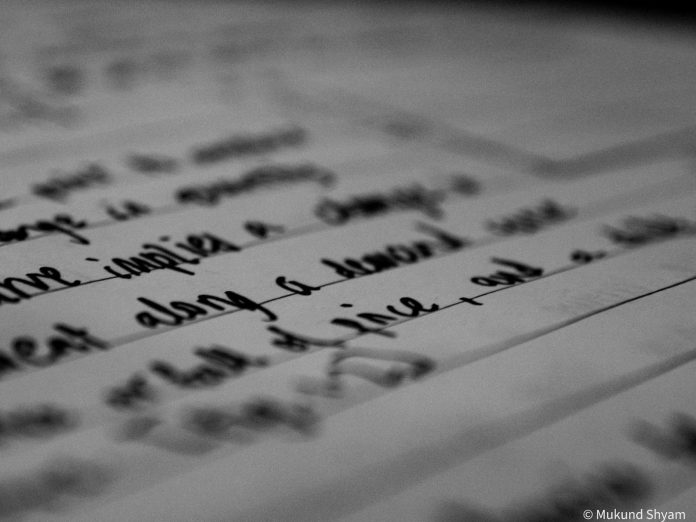Picture this: You’ve just finished writing your paper. You’ve poured your heart and soul into it, slaving over research, crafting arguments, and battling the dreaded writer’s block.
You no longer need to browse through tips like “How to Write an Introduction for a Research Paper: Full Guide” online and seek writing help. You’re exhausted but also exhilarated. You’re ready to hit that submit button and be done with it.
But wait! There’s one crucial step left: editing and revising.
Now, before you roll your eyes and think, “Ugh, not another boring grammar lesson,” let’s reframe our perspective. Editing and revising paper drafts aren’t just about fixing typos and grammar errors (though that’s important, too!). It’s about taking your paper from good to great, from a rough draft to a polished gem.
So, how to revise a paper to bring it closer to being graded as A+? Let’s figure it out.
Source: https://www.pexels.com/photo/close-up-of-human-hand-256514/
Your Perspective: Taking a Step Back
The first step to revising writing and effective editing is to take a step back and look at your paper with fresh eyes. It’s like stepping away from a painting to get a better view of the whole composition. When you’re too close to your work, it’s easy to get bogged down in the details and miss the bigger picture.
Hit the pause button on your paper and give your brain a break. Go for a walk, grab a coffee, or watch a hilarious dog video on TikTok. Then, come back to your paper with a fresh set of eyes and read it from beginning to end, like you’re settling in for a good movie.
As you read your paper, ask yourself:
- Does my main point stand out clearly?
- Do my arguments make sense and flow together smoothly?
- Is my evidence strong and persuasive?
- Does my writing style engage the reader?
If the answer to any of these questions is “no,” it’s time to roll up your sleeves and start revising.
Revising a Paper: The Art of Refinement
Revising is all about refining your ideas, strengthening your arguments, and ensuring that your paper is clear, concise, and compelling.
Start by identifying any weaknesses or inconsistencies in your paper.
Are there any leaps in your argument where things don’t quite add up? Do you need more evidence to back up your claims? Are there any parts that feel like they’re repeating themselves or don’t really fit with the rest of the paper?
Once you’ve spotted those areas that need a little TLC, it’s time to start making changes. Don’t be afraid to wield that delete key like a magic wand, banishing unnecessary words and phrases to the shadow realm.
Rearrange paragraphs, and if a section just isn’t working, don’t hesitate to give it a complete makeover. The goal is to create a paper that’s not just informative but also captivating, the kind that’ll leave your reader thinking, “Wow, this student knows their stuff!”
Editing Paper: The Nitty-Gritty Details
While revising focuses on the big picture, college paper editing is all about the nitty-gritty details. It’s like polishing a diamond – you’re smoothing out the rough edges and making sure every facet shines.
Time to put on your detective hat and hunt down those pesky typos, grammar gremlins, and punctuation problems. They might seem like small things, but they can make your paper look less polished and professional.
Next, zoom in on your sentences and the words you’ve chosen.
Are your sentences clear and easy to follow, or do they sound like you’re trying to win a prize for the most complicated sentence ever written? Are you using strong verbs and vivid imagery to engage your reader?
Last but not least, make sure your paper looks the part! This includes things like font size, margins, spacing, and citation style. If you’re unsure about any of the formatting requirements, don’t play a guessing game! Check your assignment guidelines carefully or ask your professor for clarification.
Source: https://www.pexels.com/photo/macbook-pro-near-white-ceramic-mug-265152/
Seeking Paper Editing Help: When to Call in the Experts
Let’s be honest: editing and revising can be a tedious and time-consuming process. And sometimes, it’s super helpful to have someone else take a look at your work with a fresh perspective.
If you’re struggling with the editing process or feeling unsure about your writing skills, don’t hesitate to seek out paper editing help.
First, tap into your campus resources. Your professors, TAs, and even your classmates can be valuable allies in the battle against grammar gremlins and confusing sentences.
But sometimes, you need a little extra help, and that’s okay! There’s a whole world of resources out there, from online writing guides and tutorials to professional editing services that can give your paper that extra sparkle.
You can even ask a friend or family member to read it over, as long as they’re not afraid to give you some honest feedback (and maybe help you catch those typos you’ve been staring at for hours).
Unconventional Editing Strategies
Now that we’ve covered the fundamentals of editing and revising, let’s explore some unconventional strategies that can help you take your paper to the next level.
Read Your Paper Backward
This might sound strange, but reading your paper backward, sentence by sentence, can help you identify errors that you might miss when reading it normally. It’s like zooming in on each word and phrase with a magnifying glass before you step back to admire the whole picture.
Change the Font
Switching up the font of your paper can give your brain a fresh perspective, making it easier to spot those sneaky typos or sentences that just don’t sound quite right.
Print It Out
Reading your paper on a printed page can be a different experience than reading it on a screen. It can help you identify formatting issues, spacing errors, or even just awkward phrasing that you might not have noticed on your computer.
The Final Polish
Editing and revising are essential steps in the writing process. They can turn a rough draft into a polished masterpiece.
By following the tips in revising your paper and the strategies outlined in this article, you can become a more confident and capable editor, producing high-quality work that reflects your dedication and hard work.
So, the next time you’re faced with a writing assignment, don’t just rush to submit it. Take the time to carefully revise and edit your work, and don’t be afraid to seek out help when needed.



